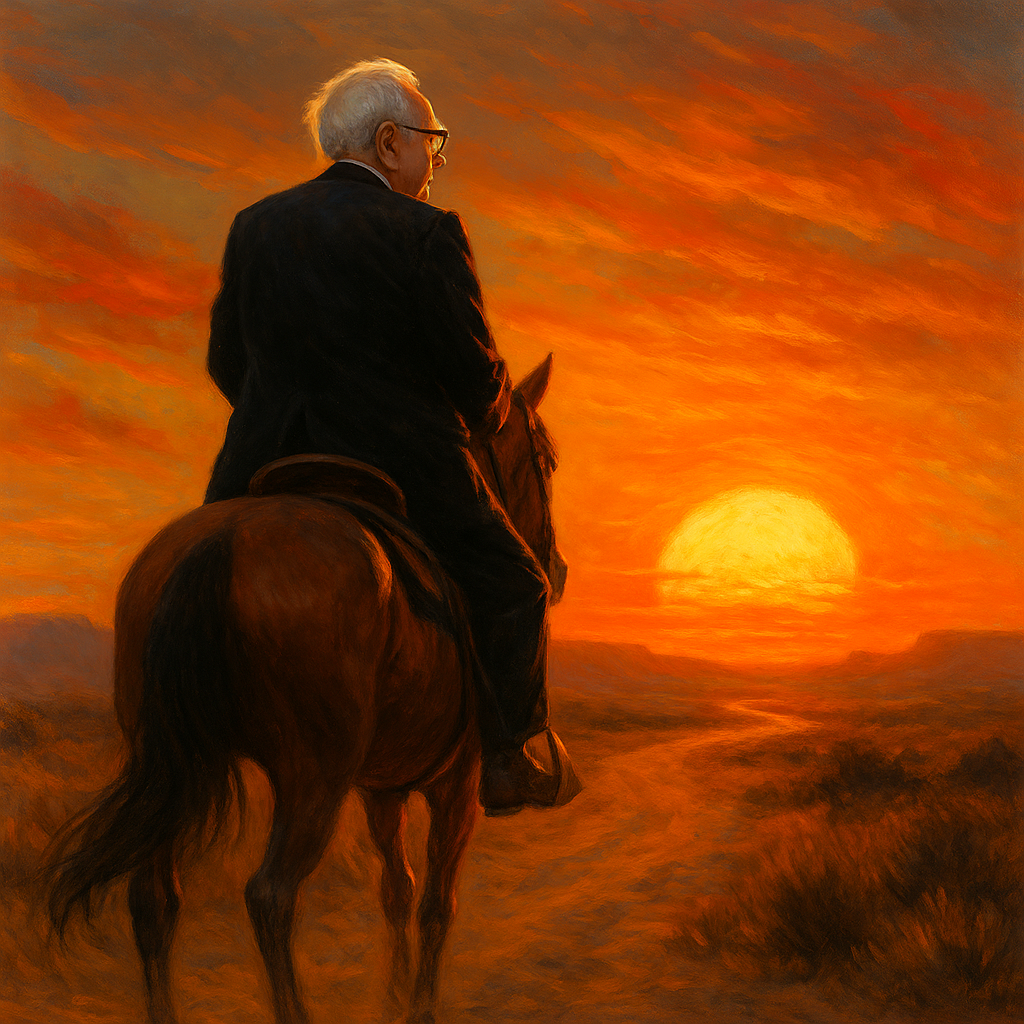
Posted May 05, 2025
By Sean Ring
Goodbye to the GOAT
After hosting 60 Berkshire Hathaway annual meetings, Warren Buffett has finally decided to step down as the company's CEO. He’ll hand the reins to Greg Abel, his handpicked successor, and stay on as Berkshire’s Chairman.
The world may be shocked, but no one is genuinely surprised. Buffett will celebrate his 95th trip around the sun this coming August, and his best friend, the inimitable Charlie Munger, died in November 2023. I imagine “sitting on his ass and reading all day,” as Munger described Buffett’s method of success, got a lot more boring without having Charlie to bounce his ideas off of.
Still… giving up his soft power must have been difficult for Buffett. From Presidents to fellow CEOs, Buffett’s word is often the last. He’s helped the country get out of recessions by advising presidents and bailing out companies like Goldman Sachs for a not-so-small “fee” of 12% on his preference shares. For Goldman, Buffett’s investment and, more importantly, his vote of confidence, were worth every penny.
First, let me show you what I think Buffett’s best trade is.
Buffett’s Genius: The Coca-Cola Trade
Now, let's discuss one of history's greatest dividend investing trades. Warren Buffett bought Coca-Cola right after the 1987 stock market crash in the summer of 1988.
Coca-Cola's price at the time was about $10 per share on a split-adjusted basis. According to The Warren Buffett Way, over the 10 months from June 1988, Buffett bought roughly a hundred million shares.
Buffett paid on average $10.96 per share.
At the end of 1989, Coca-Cola was 35% of Berkshire's common stock portfolio.
Buffett rounded his position out at 100 million shares. Two stock splits later, he now owns 400 million shares of Coca-Cola.
Coca-Cola's stock market value during the 1988 and 1989 purchase periods averaged about $15.1 billion. But Buffett understood that KO's intrinsic value was between $20 billion and $32.4 billion. It was an excellent bet for him to place.
Today, Coca-Cola’s share price is $71.65. Berkshire's original $1.3 billion investment is worth $28.66 billion. That’s a huge capital gain, but BRK also benefits from receiving dividends.
Berkshire’s annual dividend is now $816,000,000. At a cost basis of $1.299 billion, Berkshire’s dividend yield is a whopping 62.8%!
Yes, that’s $816 million in the door every year. The capital gain is almost irrelevant.
Some of his other notable trades:
GEICO
Buffett first invested in GEICO in 1951, and it would become a cornerstone of Berkshire’s insurance business. By fully acquiring it in 1996, he cemented Berkshire’s reputation in the insurance world. He unlocked the power of “float”—the premiums collected upfront that could be invested until claims were paid. Imagine the world's best investor with a capital cost approaching zero! Well, that’s what you got here.
Apple (2016)
Perhaps his most surprising—and successful—pivot late in his career. Though Buffett long avoided tech stocks, seeing them as outside his circle of competence, he called Apple “a consumer product company with a fantastic ecosystem.” Berkshire’s $36 billion investment in Apple ballooned to over $150 billion at its peak.
Staying Calm in Crisis
During the 2008 Global Financial Crisis, Buffett played the lender of last resort, investing in Goldman Sachs, Bank of America, and General Electric on favorable terms. His moves stabilized markets and netted billions in profits, once again proving that “be fearful when others are greedy, and greedy when others are fearful” isn’t just a slogan.
A Teacher, Not Just an Investor
What sets Buffett apart isn’t just his acumen, but his transparency. His annual letters to shareholders are not just informative, but also educational. They are must-reads—folksy, honest, often funny, and full of valuable lessons. Through them, he has taught generations of investors how to think about opportunity, risk, and temperament.
Get your best investing education here: Berkshire Hathaway’s annual reports.
This snippet is from the most recent (2024) annual report:
Mistakes – Yes, We Make Them at Berkshire
Sometimes I’ve made mistakes in assessing the future economics of a business I’ve purchased for Berkshire – each a case of capital allocation gone wrong. That happens with both judgments about marketable equities – we view these as partial ownership of businesses – and the 100% acquisitions of companies.
At other times, I’ve made mistakes when assessing the abilities or fidelity of the managers Berkshire is hiring. The fidelity disappointments can hurt beyond their financial impact, a pain that can approach that of a failed marriage.
A decent batting average in personnel decisions is all that can be hoped for. The cardinal sin is delaying the correction of mistakes or what Charlie Munger called “thumb-sucking.” Problems, he would tell me, cannot be wished away. They require action, however uncomfortable that may be.
* * * * * * * * * * * *
During the 2019-23 period, I have used the words “mistake” or “error” 16 times in my letters to you. Many other huge companies have never used either word over that span. Amazon, I should acknowledge, made some brutally candid observations in its 2021 letter. Elsewhere, it has generally been happy talk and pictures.
I have also been a director of large public companies at which “mistake” or “wrong” were forbidden words at board meetings or analyst calls. That taboo, implying managerial perfection, always made me nervous (though, at times, there could be legal issues that make limited discussion advisable. We live in a very litigious society.)
* * * * * * * * * * * *
Is Berkshire Still Abel?
Greg Abel, long identified as Buffett’s successor for non-insurance operations, now takes the reins. He’s steeped in Berkshire culture. Buffett trusts him, and former Vice Chair Charlie Munger (who passed away in 2023) also trusted him. While the investing world will miss Buffett's folksy wisdom and steady hand, the structures he built—and the culture he instilled—are designed to endure.
Only time will tell if they will.
Wrap Up
Buffett’s retirement marks the end of an era. He didn’t just beat the market—he beat cynicism, overconfidence, and fads. He proved that you could win with humility, curiosity, and patience.
Buy and hold works better if your holding period is many decades.
Buffett wasn’t perfect, but then again, no one is. But I’m grateful to him for shedding light on a sometimes shady business. Investing like he did is, perhaps, an unattainable goal. But even when you miss that target, you’ll be better than you dreamed.

❤️🔥HOLY SMOKE! An American Pope!
Posted May 09, 2025
By Sean Ring
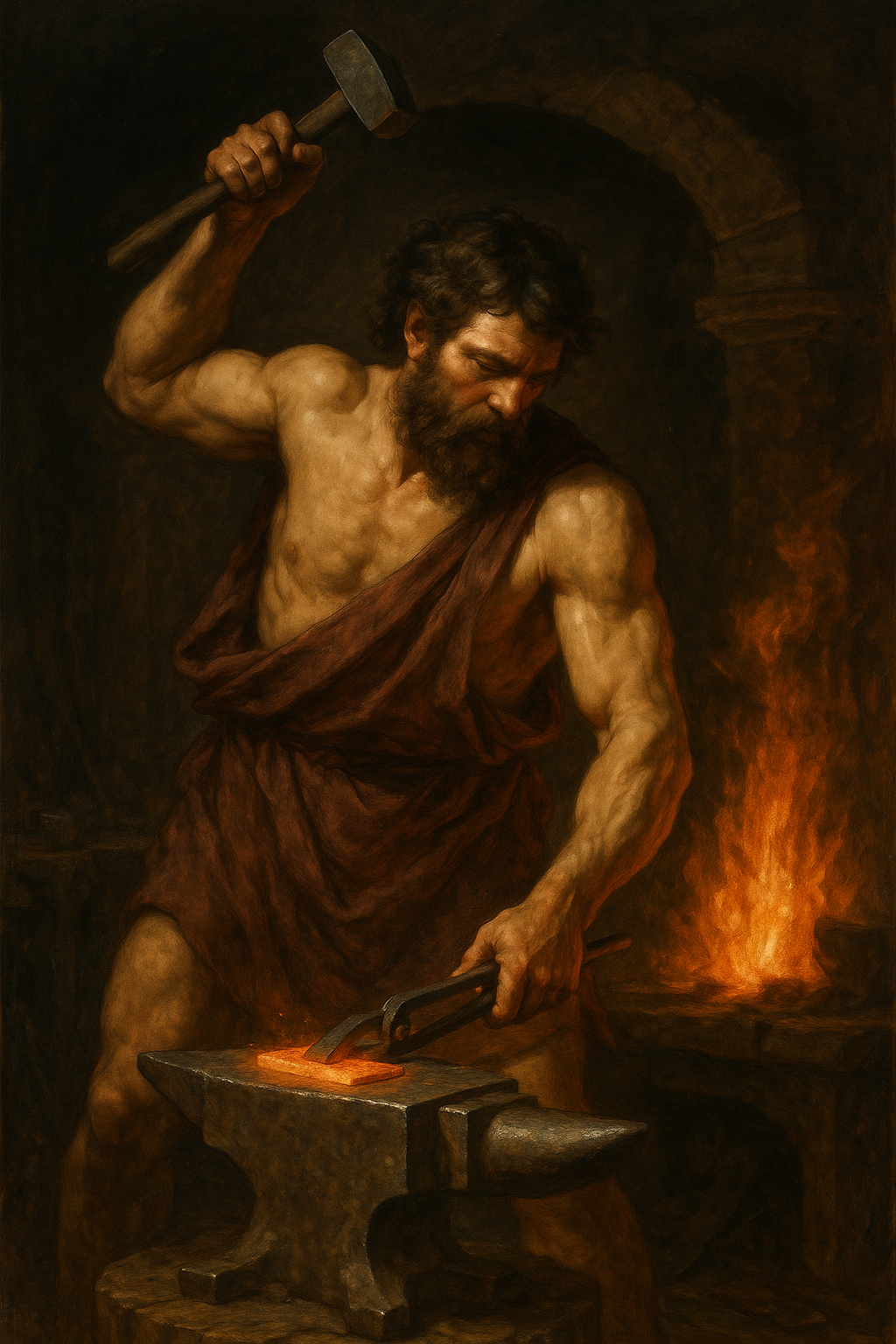
The Age of Hephaestus Has Begun
Posted May 08, 2025
By Sean Ring
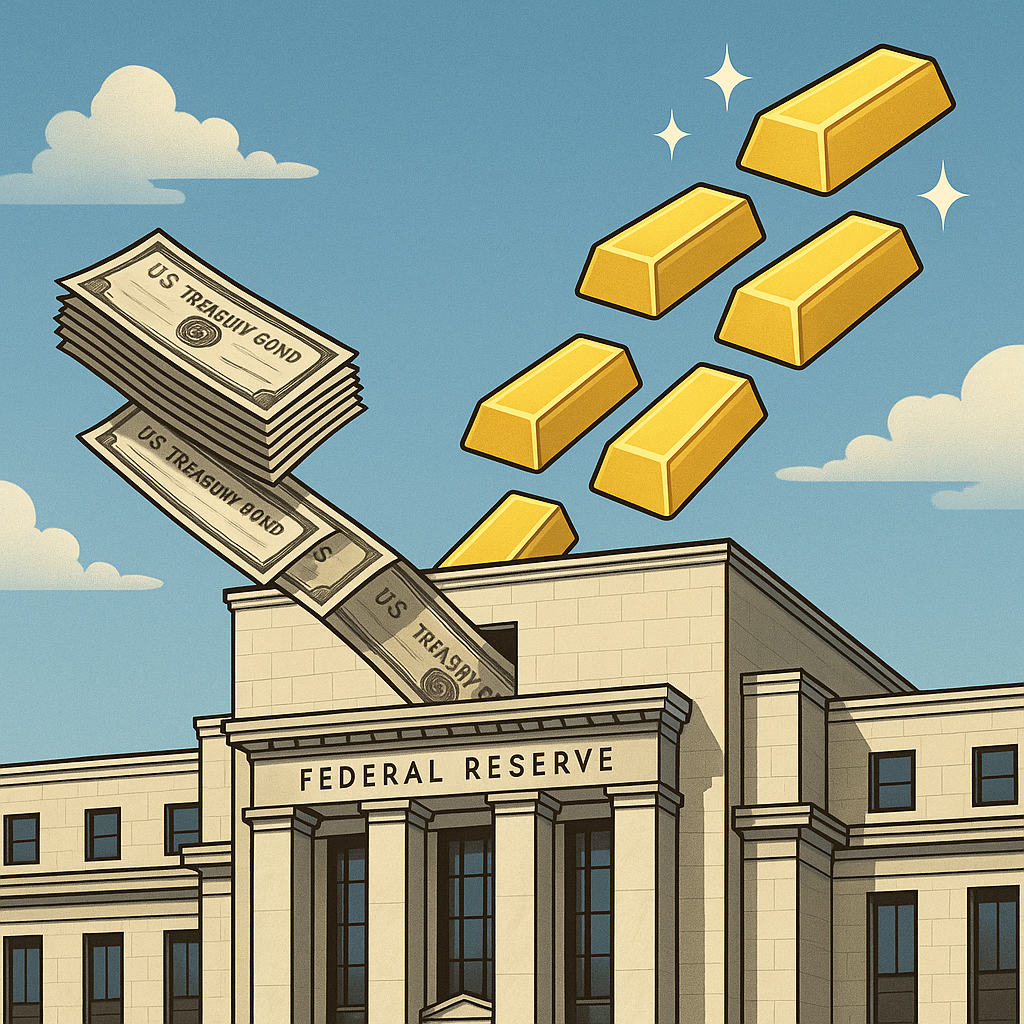
Fed’s “Stealth” QE Pushed Gold Above $3,400
Posted May 07, 2025
By Sean Ring
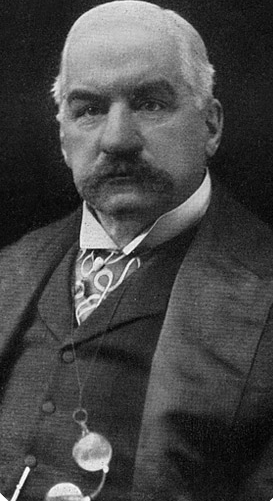
J.P. Morgan’s Last Rescue Mission
Posted May 02, 2025
By Sean Ring
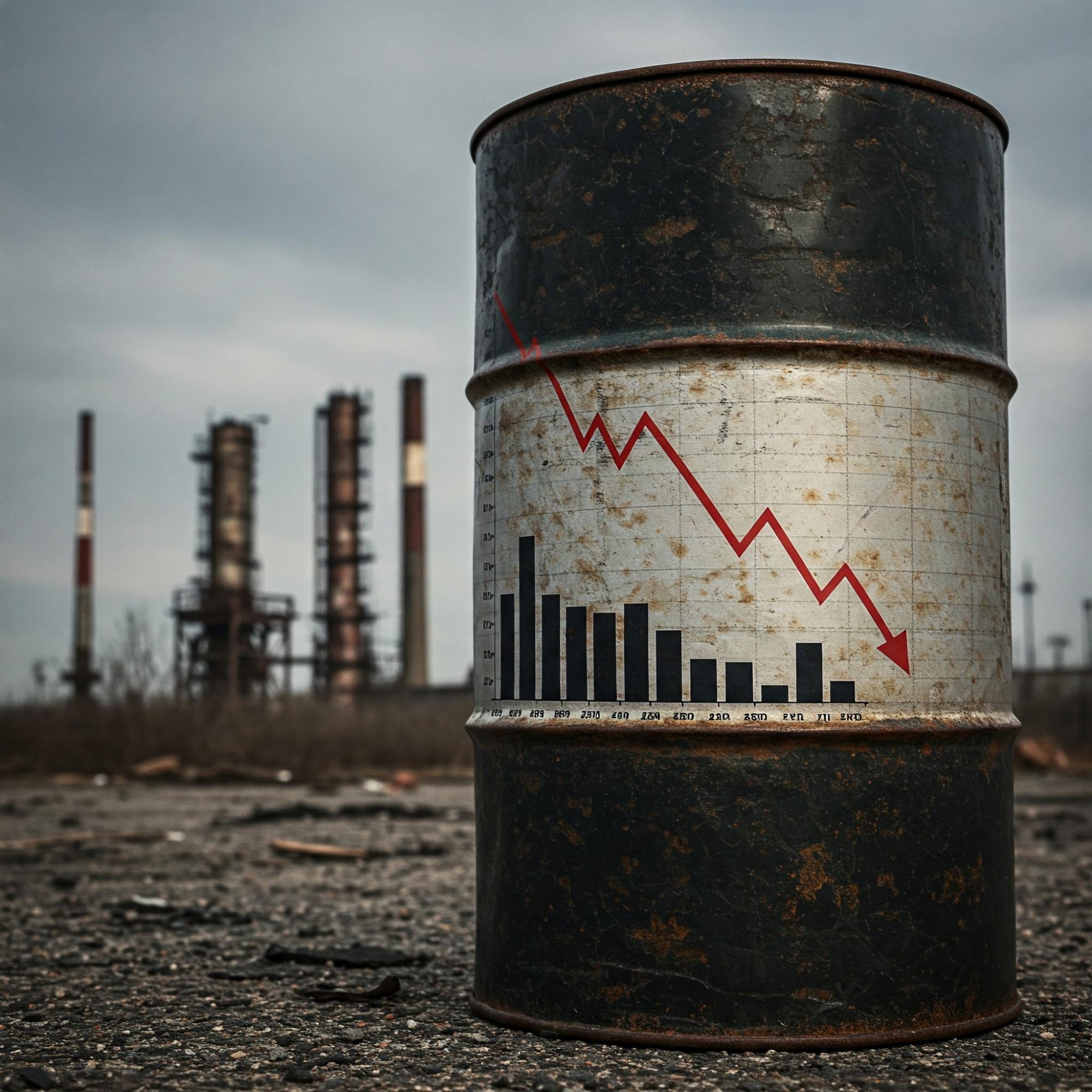
Black Gold, Black Death
Posted May 01, 2025
By Sean Ring

